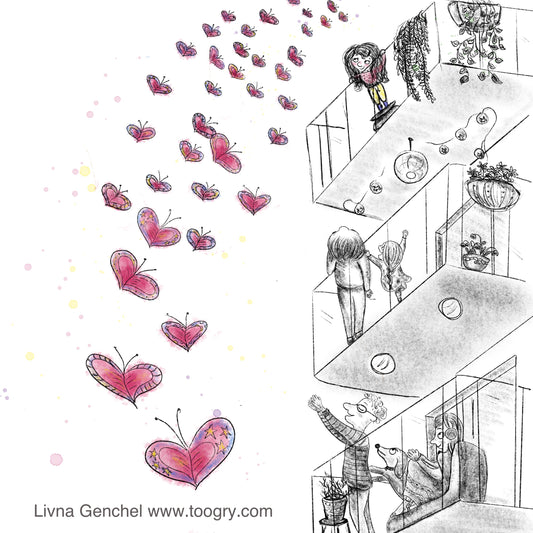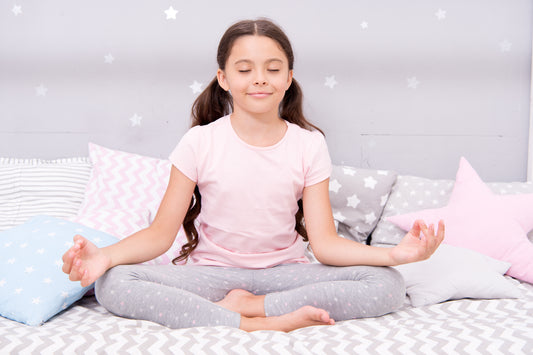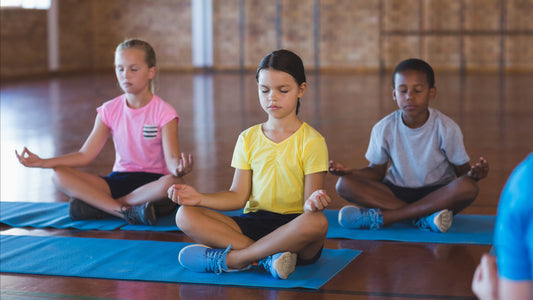Attention Deficit Hyperactivity Disorder (ADHD) is a neurodevelopmental condition that affects an estimated 5% to 10% of school-aged children. Characterized by inattention, hyperactivity, and impulsivity, ADHD can pose significant challenges for children, affecting their academic performance, social interactions, and emotional well-being.
In recent years, meditation has emerged as a promising complementary therapy for children with ADHD, offering a non-pharmacological approach to managing symptoms and promoting overall well-being. Research suggests that meditation can effectively reduce hyperactivity, improve attention span, and enhance emotional regulation in children with ADHD.
How Meditation Can Help Children with ADHD
Meditation works by training the mind to focus on the present moment, reducing distractions and cultivating a sense of inner calm. This practice can be particularly beneficial for children with ADHD, who often struggle with excessive thoughts, difficulty focusing, and impulsive behavior.
Studies have shown that regular meditation can lead to a significant reduction in hyperactivity symptoms in children with ADHD. By calming the mind and body, meditation can help children control their movements and reduce restlessness.
Meditation can also improve attention span and focus in children with ADHD. The practice of focusing on the breath and bodily sensations helps to train the mind to stay present and resist distractions, leading to enhanced concentration and attention in daily activities.
In addition to reducing hyperactivity and improving attention, meditation can also enhance emotional regulation in children with ADHD. By learning to observe their thoughts and emotions without judgment, children can develop better self-awareness and manage their emotions more effectively. This can lead to reduced impulsivity, improved decision-making, and greater emotional resilience.
4 Ways that Meditation can help kids with ADHD
- Improved Attention: Meditation can help children with ADHD improve their ability to sustain attention and focus on a task for longer periods of time.
- Better Self-Regulation: Meditation can help children with ADHD learn to regulate their emotions and behavior. This can help them to manage impulsivity and hyperactivity.
- Reduced Stress and Anxiety: Meditation can help children with ADHD reduce stress and anxiety, which can contribute to hyperactivity and distractibility.
- Increased Mindfulness: Meditation can help children with ADHD develop mindfulness, which is the ability to stay present and aware of one's thoughts, feelings, and surroundings. This can help them to be more attentive and focused in their daily activities.
Introducing Meditation to Children with ADHD
When introducing meditation to children with ADHD, it's important to consider their age, attention span, and preferences. Shorter meditation sessions of 5-10 minutes are often more suitable for young children with ADHD, while older children may benefit from longer sessions.
Incorporate playful and engaging techniques to make meditation enjoyable for children with ADHD. Guided visualizations, interactive games, meditation props and mindful coloring activities can help keep their attention and make the practice more fun and engaging.
Create a calm and distraction-free environment for meditation. Choose a quiet space with minimal distractions, such as toys or electronic devices. Use soothing music, soft lighting, and designated seating area, like a kids meditation rug, to promote relaxation and focus.
Be patient and supportive as your child explores meditation. Children with ADHD may find it challenging to focus initially, so be understanding and encourage them to continue practicing. Celebrate their progress, no matter how small, to reinforce their efforts and foster a sense of accomplishment.
It's important to note that meditation should not be used as a replacement for medication or other treatments for ADHD. However, it can be a helpful complementary tool for managing symptoms and improving overall well-being. It's recommended to find a good time that works best with your child to meditate, and to work with a trained professional to develop a meditation practice that is tailored to the child's specific needs and abilities.
To learn more about how to teach your kids to meditate visit our BLOG




